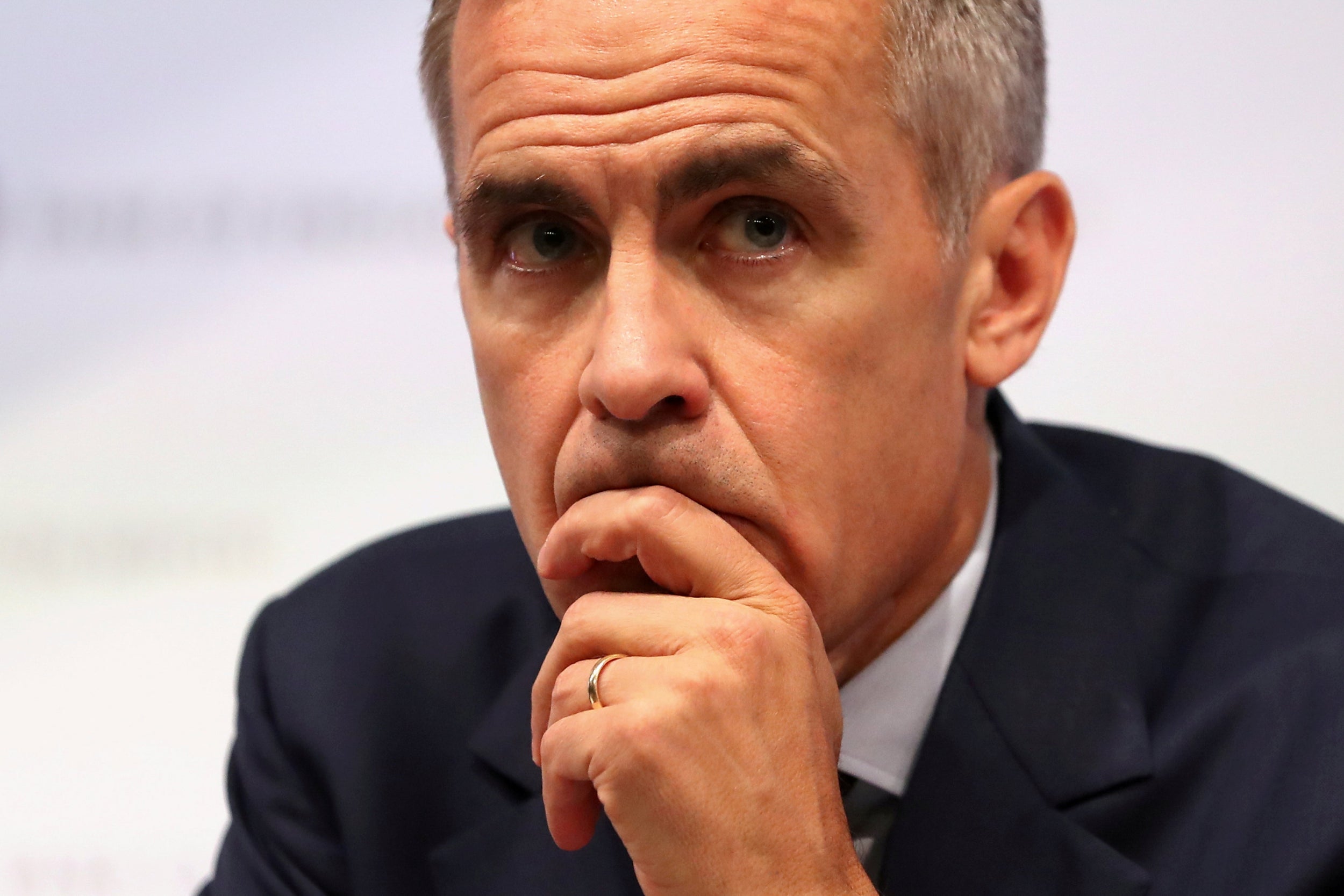Wages are rising but productivity isn't. Bank of England Governor Mark Carney is playing Brexit poker with a terrible hand
The worst hand starting hand in Texas Hold ‘Em poker is a two and a seven of different suits and that's what Mr Carney is holding

Your support helps us to tell the story
From reproductive rights to climate change to Big Tech, The Independent is on the ground when the story is developing. Whether it's investigating the financials of Elon Musk's pro-Trump PAC or producing our latest documentary, 'The A Word', which shines a light on the American women fighting for reproductive rights, we know how important it is to parse out the facts from the messaging.
At such a critical moment in US history, we need reporters on the ground. Your donation allows us to keep sending journalists to speak to both sides of the story.
The Independent is trusted by Americans across the entire political spectrum. And unlike many other quality news outlets, we choose not to lock Americans out of our reporting and analysis with paywalls. We believe quality journalism should be available to everyone, paid for by those who can afford it.
Your support makes all the difference.The worst hand starting hand in Texas Hold ‘Em poker is a two and a seven of different suits. They’re the hardest to make a winner with when all five communal cards are on the table.
They’re what the Bank of England’s Governor Mark Carney is holding as he faces up to a Brexit in which the only sensible option may be for him not to play.
That, of course, would mean him resigning, and adding a whole new order of magnitude to the chaos that Britain faces. So instead he’s sitting at the table with a rotten hand, hoping he’ll somehow hit on the cards that are dealt to him.
This brings us to the latest official statistics showing that unemployment edged up between June and September, the first time that’s happened in a while.
The labour market remains tight, however, in part because of the continuing exodus of EU workers who have been plugging some very big gaps in the British economy.
This contributed to wages rising by 3.2 per cent, comfortably above the current rate of inflation.
Regular readers will have seen that the Chartered Institute of Personnel & Development yesterday said the overall outlook for wage growth remains muted, and that employers are responding to staff shortages by increasing people’s workloads.
But in some areas pay growth is picking up. It's a good time to be changing jobs, for example, because new hires are doing particularly well.
Rising real wages really ought to be welcome, given the squeeze on real incomes seen in recent years, when inflation has frequently risen at a faster rate than people's pay.
But there’s a problem. The sting in the numbers’ tail, the bad card if you like, is that productivity barely moved. So these rising wages could help stoke inflation in future.
A pound on its knees will add only to that, although right now it resembles a yo yo, apt to move in response to any change in the Brexit mood music.
Even if a deal is agreed, Theresa May will have to get it through Parliament, and that is looking less and less likely. Sterling's overall weakness and volatility looks set to be with us for a while.
The worry for Mr Carney, however, is that inflation, which he is supposed to keep a lid on, could easily rise at a time when the economy is least able to cope with an interest rate rise, which is the weapon he has for dealing with it, all the more so in the case of a chaotic Brexit.
He needs to raise interest rates, and in the event of a deal the Monetary Policy Committee he chairs will likely do so. These latest figures don't change that.
The only card he has to play in the event of a disorderly Brexit is to stand pat and take a lot of liberties with his 2 per cent inflation target.
A central banker's lot is not a happy one and this one holds a pair of very bad cards. Worse still is the fact that ranged around the poker table against him are the leaderships of the two main political parties, and large sections of the UK media.
Those of us living on the islands had best hope he finds some luck from somewhere. If you happen on upon a four leaf clover you'd best send it to his office at Threadneedle Street, London.
Join our commenting forum
Join thought-provoking conversations, follow other Independent readers and see their replies
Comments